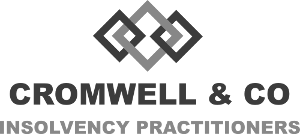Individual Voluntary Arrangement
An Individual Voluntary Arrangement (‘IVA’) is a legally binding agreement made between an individual debtor and his/her creditors. Under the terms of the IVA, the debtor will usually pay all or part of their debts over an agreed period of time (typically five years). When the final payment is made under the terms of the arrangement, any remaining debt is written off. In some cases a debtor can write off a significant amount of their unsecured debts. For many people an IVA is a preferred solution as it enables them to avoid bankruptcy, and all the unsettling consequences that comes with it. Once approved, the arrangement will be overseen by a licensed Insolvency Practitioner, known as a Supervisor.
If you are being threatened by a creditor such as HM Revenue & Customs, an IVA could prevent creditors from taking any further action against you.
An IVA must be approved by a majority of 75% or more in value of unsecured creditors. Once approved, all creditors are legally bound under the terms of the arrangement, including all non-voting creditors, or creditors that did not receive notice of the meeting required to approve the IVA.
A debtor must make a full disclosure of all their assets and liabilities. Creditors will also require assurance that the IVA terms are realistic and achievable. Creditors will generally support an IVA as they are likely receive significantly less should the debtor be made bankrupt. A debtor can enter into an IVA even if they are already made bankrupt or where a bankruptcy petition has already been presented against them.
As licensed Insolvency Practitioners, we can undertake a free review of your financial affairs and consider whether an IVA is the right procedure for you. We are committed to giving you the best advice and will help you to formulate a proposal to your creditors, whilst making sure that the terms are both reasonable and achievable.
What are the Benefits
- You make affordable monthly payments, usually over five or six years.
- If you have a lump sum to offer, this can be paid as a one-off ‘full and final’ settlement, or a combination of lump sum payments followed by monthly payments.
- Once you’ve made your final payment any remaining debt is written off.
- Your creditors can’t pursue you for your debts.
- If you’re a homeowner, you’ll usually be able to keep your home, provided you maintain the mortgage payments and any other loans secured on your property.
What are the Risks
- If there’s equity in your home then you’ll need to try to re-mortgage.
- If you are unable to re-mortgage you can make a maximum of 12 extra payments or a 3rd party can offer a sum equivalent to the equity.
- Please be aware that remortgaging may result in a higher interest rate.
- Your credit rating will be negatively affected.
- Your IVA will be recorded in a public register.

